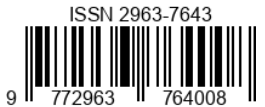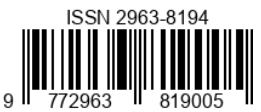ANALISIS SISTEM INFORMASI AKUNTANSI DAN PENGENDALIAN INTERNAL PERSEDIAAN BAHAN BAKU PADA JENGKI COFFEE DI SURABAYA
DOI:
https://doi.org/10.55606/jekombis.v2i1.992Keywords:
Accounting Information System, Inventory, Internal ControAbstract
The accounting system is a tool used to organize or collect, collect, and conduct information regarding all company transactions, where employees, company activities, materials and machines can be integrated in such a way that supervision can be carried out. This study aims to find out how to analyze information systems and internal control of raw material supplies at the JENGKI Coffee shop in SURABAYA. The data used are qualitative data in the form of some basic analysis from field interviews. The results showed that the Jengki Coffee Shop has good supply chain management capabilities as evidenced by the existence of suppliers who have long-term cooperative relationships with them.
References
Indah, D. rosa, & Maulida, Z. (2018). Pengendalian Persediaan Bahan Baku Pada PT. Aceh Rubber Industries Kabupaten Aceh Tamiang. Jurnal Manajemen Dan Keuangan, 7(2), 157. https://doi.org/10.33059/jmk.v7i2.814
Kusnendi. (2012). Konsep Dasar Sistem Informasi. Lecture Notes : Sistem Informasi, 1–10.
Prabowo, R. G. M., Hariyanti, T. P., & Marlena. (2021). Analisis Pengendalian Internal pada Implementasi Anggaran Kegiatan Lindik Dalam Menunjang Efektivitas Pengelolaan Administrasi. 5(1), 1124–1135.
Sofia, I. P. (2015). Modul Sistem Informasi Akuntansi (Sistem Pemrosesan Transaksi). Universitas Pembangunan Jaya, 50.
Suryadi, A. (2021). Persediaan barang. Angewandte Chemie International Edition, 6(11), 951–952., 2013–2015.
















